


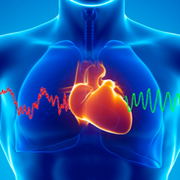 A number of years ago, I cared for a patient with a unique heart problem.
Her dog of many years was out in the backyard and unfortunately ended
up with a paw stuck in a metal trap set for a raccoon. My patient ran
to the dog’s aid. Frantic from being caught in the trap, the dog bit
my patient. She was ultimately able to free the animal, but as she returned
to her house she suddenly felt dizzy and collapsed.
A number of years ago, I cared for a patient with a unique heart problem.
Her dog of many years was out in the backyard and unfortunately ended
up with a paw stuck in a metal trap set for a raccoon. My patient ran
to the dog’s aid. Frantic from being caught in the trap, the dog bit
my patient. She was ultimately able to free the animal, but as she returned
to her house she suddenly felt dizzy and collapsed.
Fortunately, someone started CPR immediately. Paramedics arrived in a few minutes to deliver a life-saving shock to her heart to stop a cardiac arrest. In the hospital, we found that the bottom two-thirds of her heart had dilated and stopped pumping, but her coronary arteries were normal. The diagnosis was stress-related heart disease (cardiomyopathy), which is also called Takotsubo cardiomyopathy, or broken-heart syndrome. As her stress decreased over the next few weeks, her heart completely recovered.
This is just one story illustrating the fact that mind and heart are
intimately connected. In some circumstances, our hearts can fail and
go into cardiac arrest from stress alone. With this concept in mind,
many discoveries about stress and heart disease are more understandable.
For example, I have previously written about how relationships with
our spouses and how we control our emotions can directly impact our
heart health, independent of traditional heart risk factors.
Read the full story »

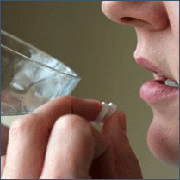 Most of us have heard about the placebo effect, but how does it work?
Is it really possible that the effectiveness of medications might depend
on what we believe about them? If so, how many of us have felt better
because of a placebo effect at some point, without realizing it? And
if a cure for whatever ails us is in the mind, then why don't we make
better use of this phenomenon?
Most of us have heard about the placebo effect, but how does it work?
Is it really possible that the effectiveness of medications might depend
on what we believe about them? If so, how many of us have felt better
because of a placebo effect at some point, without realizing it? And
if a cure for whatever ails us is in the mind, then why don't we make
better use of this phenomenon?
Magazine articles and news programs report on the placebo effect, hinting
at the possibility that the brain may exert more control over health
and disease in the rest of the body than we ever imagined. Numerous
case studies, clinical research and incidental medical findings illustrate
how the mind and body are so interconnected that healing often happens
when we merely believe that an effective treatment has been administered,
even when that treatment is a sham. Sugar pills, as it turns out, can
- and often do - possess all the power of real medications. Digging
deeper, we find that many prescription drugs fail to show a therapeutic
benefit when tested against these so-called "dummy pills,"
if they are tested against them at all.
Read the full story »

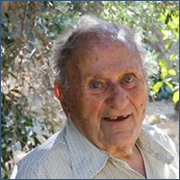 My book Mind Over Medicine is full of data scientifically proving
that the mind can heal - or harm - the body. But data can be dry, and
sometimes what resonates most deeply within our souls are stories. So
sit back, grab a cup of tea, and let’s have story time. I’m going to
tell you a few true stories that will demonstrate to you how powerfully
the mind affects your physiology.
My book Mind Over Medicine is full of data scientifically proving
that the mind can heal - or harm - the body. But data can be dry, and
sometimes what resonates most deeply within our souls are stories. So
sit back, grab a cup of tea, and let’s have story time. I’m going to
tell you a few true stories that will demonstrate to you how powerfully
the mind affects your physiology.
The Story of Mr. Wright
As reported by Bruno Klopfer in the Journal of Projective Techniques in 1957, Dr. West was treating Mr. Wright, who had an advanced cancer called lymphosarcoma. All treatments had failed, and time was running out. Mr. Wright’s neck, chest, abdomen, armpits, and groin were filled with tumors the size of oranges, his spleen and liver were enlarged, and his cancer was causing his chest to fill up with two quarts of milky fluid every day, which had to be drained in order for him to breathe. Dr. West didn’t expect him to last a week.
But Mr. Wright desperately wanted to live, and he hung his hope on
a promising new drug called Krebiozen. He begged his doctor to treat
him with the new drug, but the drug was only being offered in clinical
trials to people who were believed to have at least three months left
to live. Mr. Wright was too sick to qualify.
Read the
full story »

 We
are not truly "ill," in the sense that we do not have a significant
malfunction of an organ or organ system that can be readily diagnosed
by traditional contemporary medical testing. But we certainly experience
bouts of discomfort, pain or distress - in other words, we just don’t
feel right!
We
are not truly "ill," in the sense that we do not have a significant
malfunction of an organ or organ system that can be readily diagnosed
by traditional contemporary medical testing. But we certainly experience
bouts of discomfort, pain or distress - in other words, we just don’t
feel right!
And we often feel it physically - in particular parts of our bodies, such as head, back and joints, chest and abdomen. We experience pain, discomfort, heaviness and a variety of other vaguely abnormal sensations which seem to either focus in on one part of our bodies, or in an overall sense of general discontent and "dis-ease."
We feel it emotionally as well, in the form of blues and blahs, anxiety,
fatigue, frustration, unhappiness; lack of focus, strength, appetite,
sleep, sex drive; and an absence of enthusiasm, motivation, and joie
de vivre. From a spiritual perspective, it may be experienced as a sense
of emptiness, confusion, lack of direction, an absence of meaning and
also, a loss of faith. I am not referring to a loss of faith in a Divine
Being but in oneself and the reason for being here on earth.
Read the full
story »

MORE PERSPECTIVES:
 Go
With The Flow: The Power of a Mind Body Fitness Practice
Go
With The Flow: The Power of a Mind Body Fitness Practice  Beyond
Self Image
Beyond
Self Image  Activate
the Power of Imagery To Heal
Activate
the Power of Imagery To Heal  Relax
Your Way To Perfect Health
Relax
Your Way To Perfect Health  The
Science of Happiness
The
Science of Happiness  7
Little Habits That Can Change Your Life, and How to Form Them
7
Little Habits That Can Change Your Life, and How to Form Them  On
Meditation
On
Meditation  Self-care
Strategies for Managing Depression, Anxiety, and Other Emotions
Self-care
Strategies for Managing Depression, Anxiety, and Other Emotions  The Simple Truth About Hypnosis
The Simple Truth About Hypnosis  Laying
A Good Foundation For Health: Releasing Negative Emotions
Laying
A Good Foundation For Health: Releasing Negative Emotions  EFT
- Four Tips for Fast Results
EFT
- Four Tips for Fast Results 

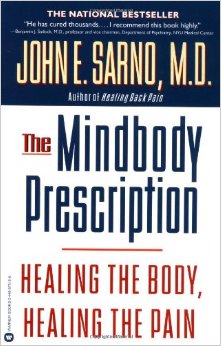





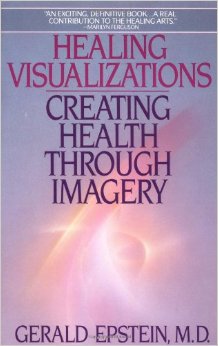
 The
Genie in Your Genes: Epigenetic Medicine and the New Biology of Intention
The
Genie in Your Genes: Epigenetic Medicine and the New Biology of Intention
